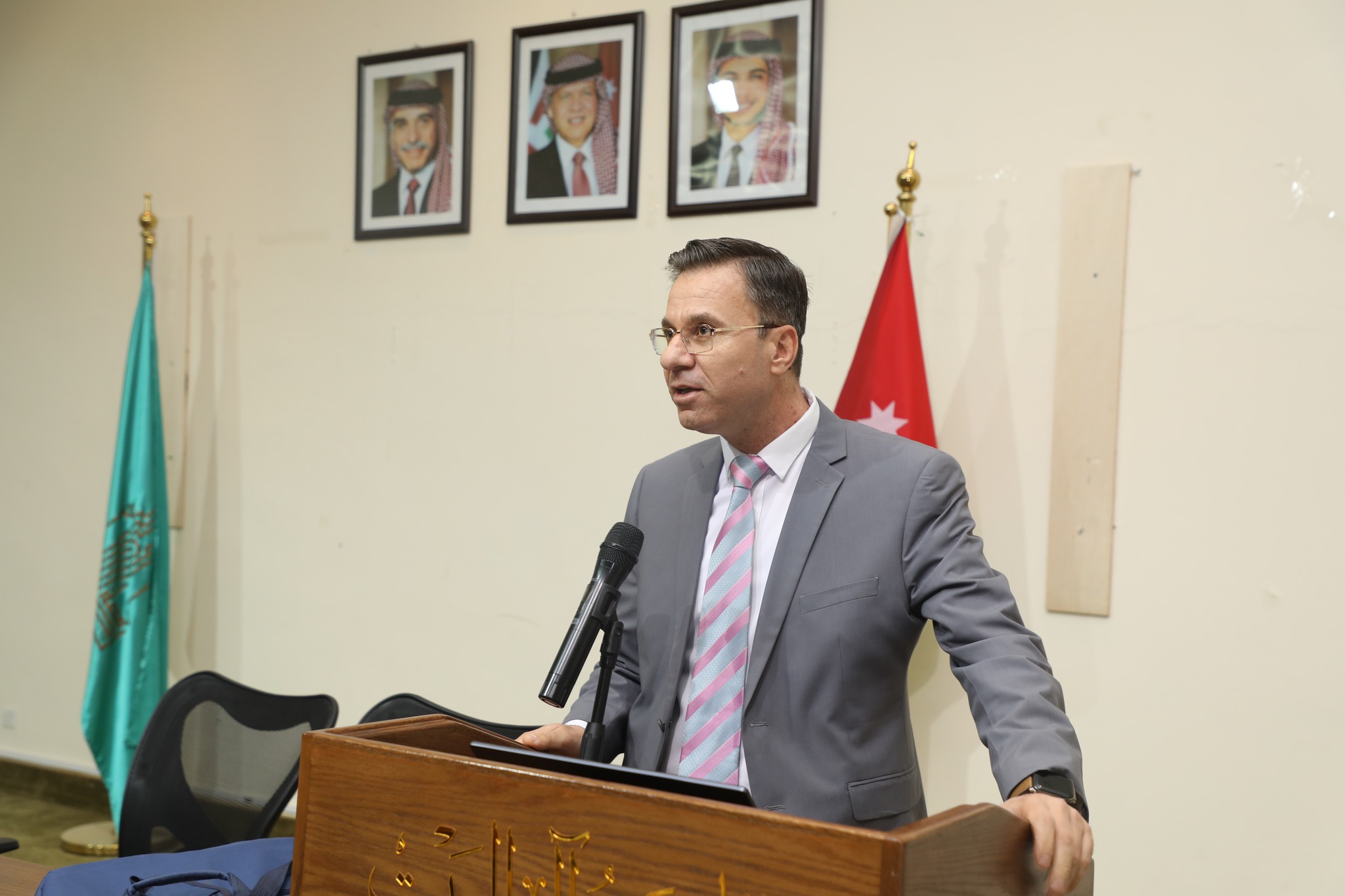A lecture on Artificial Intelligence and its applications in scientific and basic science disciplines.

The Faculty of Science at the University organized a lecture entitled "Artificial Intelligence and its Applications in Scientific Disciplines and Basic Sciences," presented by Dr. Raafat Musa Al-Sharman from the Faculty of Information Technology and Computer Science at Yarmouk University, in the Al-Bukhit Amphitheater at the university.
The Dean of the Faculty, Professor Dr. Raed Banat, pointed out during his introduction of the lecturer the amazing developments the world has witnessed in recent decades in the field of artificial intelligence, which has become one of the main axes in digital transformation and technological development.
During the lecture, Al-Sharman explained the definition of artificial intelligence as a branch of computer science, with the ability to solve problems and difficulties, characterized by a high scientific ability in analysis, thinking, and deduction, asking when do we resort to artificial intelligence and why do we use it? Al-Sharman also defined artificial intelligence as a branch of computer science, with the ability to solve problems and difficulties, characterized by a high scientific ability in analysis, thinking, and deduction, asking when do we resort to artificial intelligence and why do we use it, its types and divisions, how it develops, and how it is linked to any development that occurs in other basic sciences.
He pointed out that artificial intelligence is no longer limited to programming applications or robots, but has become a prominent presence in scientific disciplines and basic sciences such as physics, chemistry, biology, and mathematics. This progress has provided new tools for researchers to help them analyze big data, conduct scientific simulations, and accelerate discoveries, which has revolutionized research and education methods, and build the necessary scientific and practical skills and knowledge by focusing on the basic technologies in data science and artificial intelligence within the provision and use of modern technologies and programming in these sciences.
At the end of the lecture, which was attended by a number of faculty members from the Faculty of Science, a dialogue took place between the lecturer and the audience, in which he answered the students' questions and inquiries.